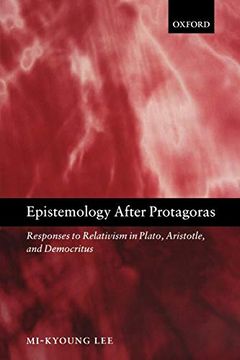Epistemology After Protagoras Responses to Relativism in Plato, Aristotle, and Democritus
Synopsis "Epistemology After Protagoras Responses to Relativism in Plato, Aristotle, and Democritus"
Relativism, the position that things are for each as they seem to each, was first formulated in Western philosophy by Protagoras, the fifth-century BC Greek orator and teacher. Mi-Kyoung Lee examines the challenge to the possibility of expert knowledge posed by Protagoras, together with responses by the three most important philosophers of the next generation, Plato, Aristotle, and Democritus. In his book Truth, Protagoras made vivid use of two provocative but imperfectly spelled out ideas: first, that we are all 'measures' of the truth and that we are each already capable of determining how things are for ourselves, since the senses are our best and most credible guides to the truth; second, given that things appear differently to different people, there is no basis on which to decide that one appearance is true rather than the other. Plato developed these ideas into a more fully worked-out theory, which he then subjected to refutation in the Theaetetus. In his Metaphysics Aristotle argued that Protagoras' ideas led to scepticism. And finally Democritus incorporated modified Protagorean ideas and arguments into his theory of knowledge and perception. There have been many important recent studies of these thinkers in isolation. However, there has been no attempt to tell a single, coherent story about how Democritus, Plato, and Aristotle responded to Protagoras' striking claim, and to its perceived implications about knowledge, perception, and truth. By studying these four figures in relation to each other, we arrive at a better understanding of an important chapter in the development of Greek epistemology.

